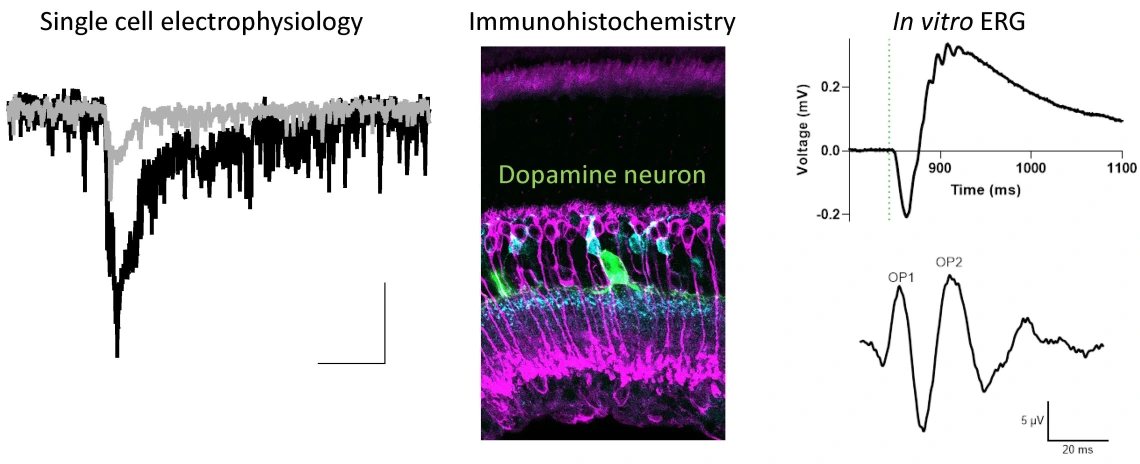Investigating the role of dopamine in diabetic retinopathy

Techniques in the Eggers Laboratory
Diabetic retinopathy is a common long-term complication of diabetes, involving retinal vasculature. However, long before this vascular dysfunction develops, retinal neurons are also dysfunctional in the diabetic retina. The Eggers lab is working to determine what mechanisms of neuronal signaling are changing in early diabetes and if treating these neuronal changes could prevent later vascular changes. To do this we use single cell patch clamp recordings, immunohistochemistry/mRNA labeling and in vitro Electroretinogram recordings that reflect the whole retinal response. One area of investigation involves the neuromodulator dopamine, which is partially responsible for the ability of the retina to adapt to bright light. The diabetic retina has low dopamine concentrations. We have found that the neuromodulator dopamine has reduced effects in the diabetic retina. This includes reduced light adaptation (Flood et al, 2020) and reduced effects of a dopamine receptor 4 agonist (Flood et al, 2022) on ganglion cells – the output neurons of the retina. We also recently showed that in vitro ERG recordings have lower sensitivity to dopamine receptor 1 and 4 agonists (MacIsaac et al, 2024). These studies show that dopamine is a potential modulator for diabetic neuronal damage. We will be investigating the effects of dopamine on other retinal cells in future studies.

